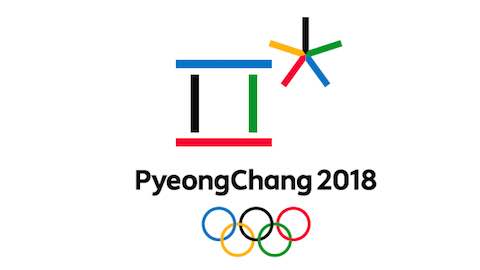- MENU
- HOME
- SEARCH
- WORLD
- MAIN
- AFRICA
- ASIA
- BALKANS
- EUROPE
- LATIN AMERICA
- MIDDLE EAST
- United Kingdom
- United States
- Argentina
- Australia
- Austria
- Benelux
- Brazil
- Canada
- China
- France
- Germany
- Greece
- Hungary
- India
- Indonesia
- Ireland
- Israel
- Italy
- Japan
- Korea
- Mexico
- New Zealand
- Pakistan
- Philippines
- Poland
- Russia
- South Africa
- Spain
- Taiwan
- Turkey
- USA
- BUSINESS
- WEALTH
- STOCKS
- TECH
- HEALTH
- LIFESTYLE
- ENTERTAINMENT
- SPORTS
- RSS
- iHaveNet.com: Olympics

Fast Facts About the 2018 Winter Olympics (Photo: Paul Drinkwater/NBC)
Fast facts about the 2018 Winter Olympics in Pyeongchang, South Korea.
The official dates of the XXIII Olympic Winter Games are Friday, February 9 through Sunday, February 25.
The Games will take place over 18 days, and competition will begin on February 8, the day before the Opening Ceremony.
More than 2800 athletes from roughly 90 countries are expected to compete in the 2018 Games.
These are the first Olympic Winter Games to be held in South Korea. The 1988 summer Olympics were held in Seoul. South Korea is the second country in Asia to host the Olympic Winter Games; Japan hosted the 1972 Games in Sapporo and 1998 Games in Nagano.
PyeongChang was selected to host the 2018 Games on July 6, 2011, at the 123rd IOC session in Durban, South Africa. PyeongChang beat Munich, Germany, and Annecy, France. The awarding of the 2018 Games did not require a second round of voting; PyeongChang won overwhelmingly in the first round, receiving 63 votes to Munich's 25 and Annecy's seven.
PyeongChang was awarded the Games after two failed attempts. The city had previously bid for the 2010 and 2014 Olympic Winter Games. The small town was virtually unknown during its first bid, and was initially confused with Pyongyang, North Korea, by some members of the IOC.
There will be a record 102 events contested in 15 sports in PyeongChang. There were 98 events on the Sochi Olympic program and 86 on the Vancouver program. Since 2014, two medal events were dropped and six were added.
PyeongChang is approximately 90 miles east of Seoul, the capital of South Korea, and 60 miles from North Korea. The city falls roughly in the middle of the next two Olympic host cities, just less than 650 miles from Tokyo, the 2020 host, and about 670 miles from Beijing, the host of the 2022 Olympic Winter Games.
The events will be spread between two clusters: the PyeongChang Mountain Cluster and Gangneung Coastal Cluster. There are 13 venues for the Games, seven of which were newly built.
The population of PyeongChang is 43,703 (as of 2014). The city encompasses an area of approximately 565 square miles (1,464 square km). The city of Gangneung, which will host events including figure skating and hockey in the coastal cluster, has a population of 219,274 (as of 2012) and an area of 401 square miles (1,039 square km).
South Korea's first ski resort, Yongpyong, opened in 1975. Yongpyong will host three alpine skiing disciplines during the Olympics: slalom, giant slalom, and the team event.
The torch relay began in Olympia, Greece, on October 24, 2017. After a week of travel around Greece, the relay arrived in Incheon, South Korea on November 1 (the 100-day countdown to the Opening Ceremony of the Games). Over the next 100 days, the flame traveled through nine provinces and eight major cities, covering 2,018 kilometers (1,254 miles) to signify the year of the Games.
There are two mascots for the 2018 PyeongChang Games: one for the Olympics and one for the Paralympics. Soohorang (SOO-ho-rahng), a white tiger, was chosen as the Olympic mascot. The Paralympic mascot, Bandabi (BAHN-da-bee) is an Asiatic black bear, an animal that traditionally symbolizes courage in Korean folklore.
The Most-Watched Winter Olympics in U.S. Television History
1. Lillehammer, 1994* 204 million
2. Vancouver, 2010 190 million
3. Salt Lake City, 2002 187 million
T4. Torino, 2006 184 million
T4. Albertville, 1992 184 million
T4. Nagano, 1998 184 million
*Fueled by the tabloid coverage of the Nancy Kerrigan/Tonya Harding scandal.
Source: NBC Sports Group
Article: Copyright ©
Olympics: "Winter Olympics: Fast Facts About the 2018 Winter Olympics"